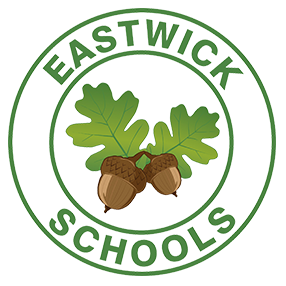Science
National Curriculum Purpose of Study
A high-quality science education provides the foundations for understanding the world through the specific disciplines of biology, chemistry and physics. Science has changed our lives and is vital to the world’s future prosperity, and all pupils should be taught essential aspects of the knowledge, methods, processes and uses of science. Through building up a body of key foundational knowledge and concepts, pupils should be encouraged to recognise the power of rational explanation and develop a sense of excitement and curiosity about natural phenomena. They should be encouraged to understand how science can be used to explain what is occurring, predict how things will behave, and analyse causes.
National Curriculum Aims
The national curriculum for science aims to ensure that all pupils:
- develop scientific knowledge and conceptual understanding through the specific disciplines of biology, chemistry and physics
- develop understanding of the nature, processes and methods of science through different types of science enquiries that help them to answer scientific questions about the world around them
- are equipped with the scientific knowledge required to understand the uses and implications of science, today and for the future.
Science at Eastwick - Intent
The science curriculum at Eastwick meets the requirements of the National Curriculum and the school’s Curriculum Intent. It prepares children to be ‘Ready for Everything’ in their futures in terms of:
- Success in the next stage of their education and beyond: by developing scientific knowledge and conceptual understanding through the specific disciplines of biology, chemistry and physics
- their ability to navigate life’s personal Challenge: by equipping children with an understanding of the nature, processes and methods of science through different types of science enquiries that help them to ask and answer scientific questions about the world around them; by developing collaboration in scientific enquiry; by developing resilience through knowing that failure and trying again is integral and necessary to the scientific process
- understanding their place in communities at global, national and local levels and seize the Opportunity of the future: by equipping them with the scientific knowledge required to understand the uses and implications of science, today and for the future of the human race and planet Earth
Science at Eastwick - Implementation
- In Reception, specific teaching opportunities are used to introduce elements of science.
- Our curriculum in Years 1-6 uses the White Rose Science scheme of work.
- Knowledge is built progressively throughout Key Stages 1 and 2. For each unit, the following is identified:
- 'knowledge end points' ('I know (that)...' or 'I know how to...' outcomes that children are expected to master by the end of the unit)
- ‘substantive knowledge strands’ (key themes and vocabulary that form the basis of children’s mental mind maps or schemas, which enable pupils to recall and build on prior knowledge)
- 'disciplinary knowledge', which is taught implicitly and explicitly and enables children to ‘walk in the expert’s shoes’.
- Pupils revisit the substantive knowledge strands as they progress through the school. Each time a strand is revisited, prior knowledge is recalled before it is covered with greater complexity or in a different context, therefore increasing children’s breadth and depth of knowledge.
- Provision is made for all pupils, including those with SEND, by teachers providing suitable access arrangements as part of their 'Quality First Teaching' offer, adapting resources and activities to meet individual children’s needs.
- Children use a range of resources in their learning and make good use of the outdoor areas of the school grounds such as the woodlands. Off-site learning takes place to support some units, at, for example, The Natural History Museum, Wisley RHS Gardens and Nower Wood (Surrey Wildlife Trust).
Curriculum Progression
Please visit the Subject Progression Documents page for details of curriculum progression in knowledge end points, substantive knowledge strands and disciplinary knowledge from Reception to Year 6.
Science at Eastwick - Impact
- The science subject leader, in conjunction with senior leaders and others, carries out monitoring of provision. This takes the form of pupil voice, lesson observation and work scrutiny.
- We know that teaching is impactful on children’s progress when:
- children demonstrate that they have built progressively complex ‘schemas’ in their long-term memory for each of the substantive knowledge strands. This is demonstrated when they can recall prior knowledge and learning, and master the knowledge in each progressive step in the curriculum because they have mastered the knowledge gained in previous steps and built on it
- children show increasing mastery of disciplinary knowledge ('Working Scientifically') as they progress through the curriculum
- children therefore show that they 'know more and remember more' after each unit of learning.


